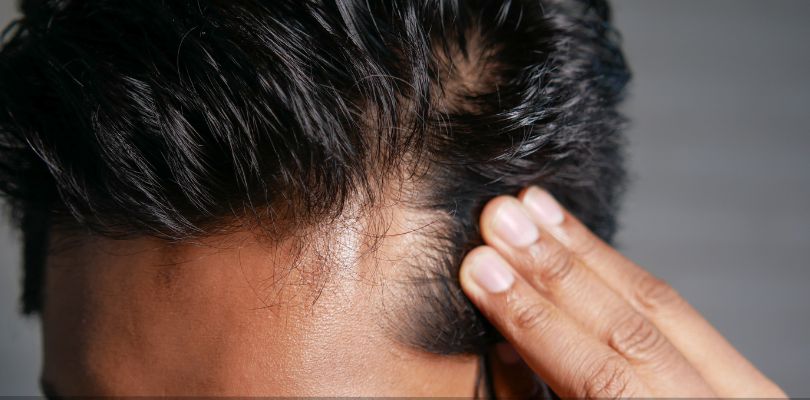Exploring the Link Between Fibromyalgia and Hair Loss
Fibromyalgia is a chronic condition known for causing widespread pain, fatigue and a host of other symptoms that can significantly impact a person’s quality of life. One lesser-known but concerning issue for many individuals with fibromyalgia is hair loss. To help, there's Litfulo, a once-daily prescription pill that helps treat severe alopecia areata in adults and adolescents who are 12 years and older.
Signs of Fibromyalgia
- Widespread pain.
- Fatigue.
- Sleep disturbances.
- Cognitive difficulties.
- Stiffness.
- Headaches.
- Irritable bowel syndrome.
- Numbness or tingling.
This article will explore the link between fibromyalgia and vision problems. Read on to learn more about the connection.
Understanding Fibromyalgia
Fibromyalgia is a disorder characterized by widespread musculoskeletal pain accompanied by fatigue, sleep disturbances, memory issues and mood swings. The exact cause of fibromyalgia is unknown, but it is believed to involve a combination of genetic, environmental and psychological factors.
How Fibromyalgia Can Lead to Hair Loss
While fibromyalgia itself does not directly cause hair loss, several related factors can contribute to thinning hair and increased shedding:
Stress and Anxiety
Chronic pain and the challenges of living with fibromyalgia can lead to significant stress and anxiety. High stress levels are known to cause hair loss conditions such as telogen effluvium, where hair prematurely enters the resting phase and falls out.
Medications
Many people with fibromyalgia take medications to manage their symptoms, including pain relievers, antidepressants and anti-seizure drugs. Some of these medications have side effects that include hair thinning and loss.
Nutritional Deficiencies
Chronic pain and fatigue can lead to poor dietary habits or malabsorption issues, resulting in deficiencies of essential nutrients like iron, vitamin D and B vitamins, all of which are crucial for healthy hair growth.
Sleep Disturbances
Fibromyalgia often disrupts sleep, leading to conditions such as insomnia. Poor sleep can affect overall health and contribute to hair loss by disrupting the body’s natural repair and growth processes.
Hormonal Imbalances
Stress and medication can also lead to hormonal imbalances, particularly involving thyroid hormones, which are closely linked to hair health.
Managing Hair Loss in Fibromyalgia
If you are experiencing hair loss and have fibromyalgia, it’s important to address both the symptoms of fibromyalgia and the potential underlying causes of hair loss:
- Stress management: Implementing stress-reduction techniques such as mindfulness, meditation, yoga and deep-breathing exercises can help lower stress levels and potentially reduce hair loss.
- Medication review: Consult with your healthcare provider about the side effects of your medications. There might be alternative treatments available that do not have hair loss as a side effect.
- Nutritional support: Ensure you are getting a balanced diet rich in essential nutrients. You might also consider taking supplements if you have specific deficiencies, but always consult with a healthcare provider first.
- Improving sleep: Work on establishing good sleep hygiene practices to improve the quality of your sleep. This includes maintaining a regular sleep schedule, creating a restful sleep environment and avoiding stimulants like caffeine before bed.
- Medical evaluation: Have your thyroid function and other hormone levels checked, as imbalances can contribute to hair loss. Treating any underlying hormonal issues can often improve hair health.
Litfulo
Litfulo is a once-daily prescription pill that helps treat severe alopecia areata in adults and adolescents who are 12 years and older. LITFULO attaches to specific proteins found in immune cells, interrupting their signaling process. This action reduces the number of immune cells that target and attack the hair follicle.
The Impact of Fibromyalgia on Hair Health
Hair loss can be a distressing experience, especially when dealing with a chronic condition like fibromyalgia. While fibromyalgia itself does not directly cause hair loss, the associated stress, medications, nutritional deficiencies and sleep disturbances can contribute to this issue.
By addressing these underlying factors and working closely with healthcare providers, individuals with fibromyalgia can manage their symptoms more effectively and potentially reduce hair loss. If you’re experiencing significant hair loss, it’s always best to consult with a medical professional to explore all possible causes and appropriate treatments.







